Premium Only Content
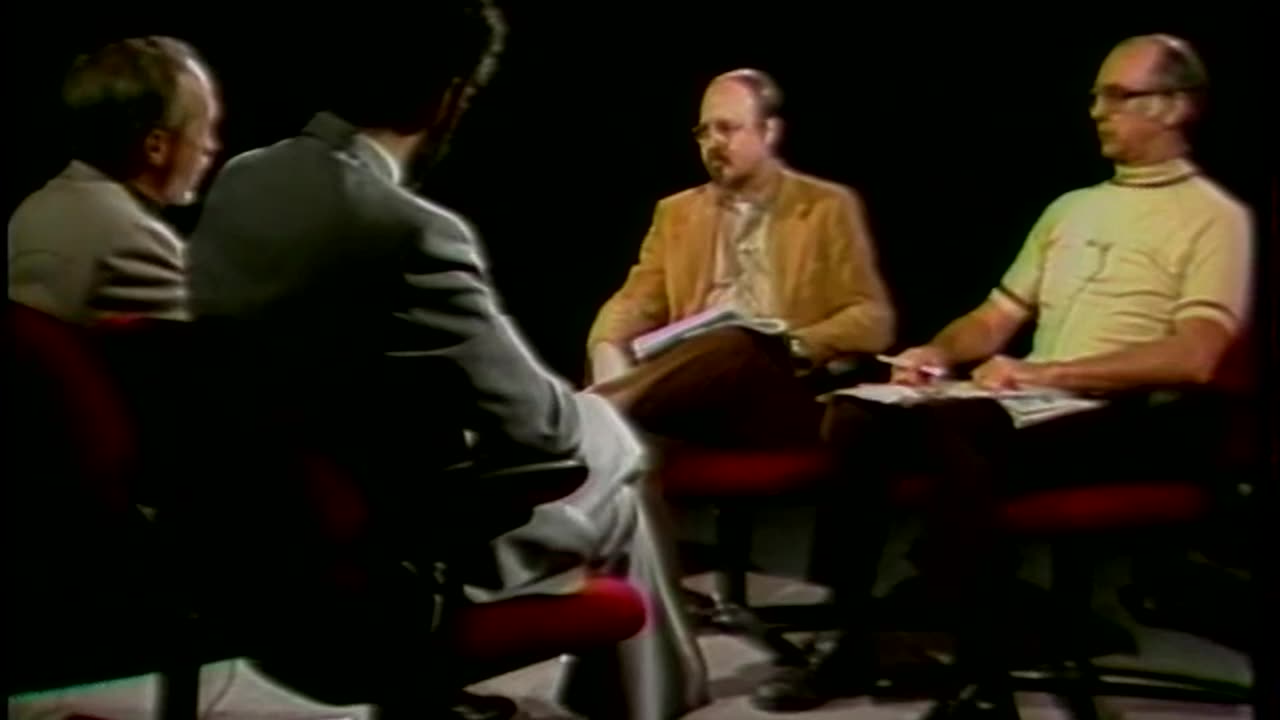
The Secret Team: Political Assassinations, Drug Running, Destabilization of Governments (1987)
The Secret Team: The CIA and Its Allies in Control of the United States and the World is a book by L. Fletcher Prouty, a former colonel in the US Air Force, first published by Prentice-Hall in 1973.
Publication history
After initial publication in 1973, Prentice-Hall republished The Secret Team in 1992 and 1997. The book was published again in 2008 and 2011 by Skyhorse Publishing, the latter edition including an introduction by Jesse Ventura.[1]
The book was offered for sale by the Church of Scientology through their Freedom magazine, during the time when Prouty was a senior editor of the magazine.[2]
Reception
In Studies in Intelligence, an official journal and flagship publication of the Central Intelligence Agency, Walter Pforzheimer described reading the book as "like trying to push a penny with one's nose through molten fudge."[3] Despite what he grants as Prouty's "considerable background and knowledge," he says the book is punctuated by "faulty recollections" and "unwarranted conclusions."[3] In a later issue, a staff writer provides a retrospective of books reviewed in Studies in Intelligence and wonders aloud "whether word ever got back to [Prouty]."[3]
Washington Monthly magazine noted that "marvelous anecdotes about the CIA's dirty-trick department are accompanied by a troubling overstatement best suggested by the subtitle, "The CIA and Its Allies in Control of the United States and the World."[4]
Assassination researcher and former Office of Strategic Services officer Harold Weisberg was less than enthusiastic about Prouty’s book. He was particularly turned off by the claim that Daniel Ellsberg was a CIA agent: "He hemmed and hawed a bit on this when confronted with an unequivocal denial made by E. to Fred Graham and to Prouty by phone. Thus he looses the legitimate point."[5]
https://en.wikipedia.org/wiki/The_Secret_Team
In 1986, the Christic Institute filed a $24 million civil suit on behalf of journalists Tony Avirgan and Martha Honey stating that various individuals were part of a conspiracy responsible for the La Penca bombing that injured Avirgan.[3][4] The suit charged the defendants with illegally participating in assassinations, as well as arms and drug trafficking.[3] Among the 30 defendants named were Iran-Contra figures John K. Singlaub, Richard V. Secord, Albert Hakim, and Robert W. Owen; CIA officials Thomas Clines and Theodore Shackley; Contra leader Adolfo Calero; Medellin cartel leaders Pablo Escobar Gaviria and Jorge Ochoa Vasquez; Costa Rican rancher John Hull; and former mercenary Sam N. Hall.[3][4][5]
On June 23, 1988, United States federal judge James Lawrence King of the United States District Court for the Southern District of Florida dismissed the case, stating: "The plaintiffs have made no showing of existence of genuine issues of material fact with respect to either the bombing at La Penca, the threats made to their news sources or threats made to themselves."[3] According to The New York Times, the case was dismissed by King at least in part due to "the fact that the vast majority of the 79 witnesses Mr. Sheehan cites as authorities were either dead, unwilling to testify, fountains of contradictory information or at best one person removed from the facts they were describing."[6] King ordered the Christic Institute to pay $955,000 in attorneys fees and $79,500 in court costs.[4] The United States Court of Appeals for the Eleventh Circuit affirmed the ruling, and the Supreme Court of the United States let the judgment stand by refusing to hear an additional appeal.[5][7] The IRS stripped the Institute of its 501(c)(3) nonprofit status after claiming the suit was politically motivated.[8] The fine was levied in accordance with Rule 11 of the Federal Rules of Civil Procedure which can penalize lawyers for frivolous lawsuits.[9]
In the wake of the dismissal, Christic attorneys and Honey and Avirgan traded accusations over who was to blame for the failure of the case. Avirgan complained that Sheehan had handled matters poorly by chasing unsubstantiated "wild allegations" and conspiracy theories, rather than paying attention to core factual issues.[10]
https://en.wikipedia.org/wiki/Daniel_Sheehan_(attorney)#Avirgan_v._Hull
In 1986, the Christic Institute filed a $24 million civil suit on behalf of journalists Tony Avirgan and Martha Honey stating that various individuals were part of a conspiracy responsible for the La Penca bombing that injured Avirgan.[2][3] The suit charged the defendants of illegally participating in assassinations, as well as arms and drug trafficking.[2] Among the 30 defendants named were Iran–Contra figures John K. Singlaub, Richard V. Secord, Albert Hakim, and Robert W. Owen; Central Intelligence Agency officials Thomas Clines and Theodore Shackley; Contra leader Adolfo Calero; Medellin cartel leaders Pablo Escobar Gaviria and Jorge Ochoa Vasquez; Costa Rican rancher John Hull; and former mercenary Sam N. Hall.[2][3][4]
On June 23, 1988, United States federal judge James Lawrence King of the United States District Court for the Southern District of Florida dismissed the case stating: "The plaintiffs have made no showing of existence of genuine issues of material fact with respect to either the bombing at La Penca, the threats made to their news sources or threats made to themselves."[2] According to The New York Times, the case was dismissed by King at least in part due to "the fact that the vast majority of the 79 witnesses Mr. Sheehan cites as authorities were either dead, unwilling to testify, fountains of contradictory information or at best one person removed from the facts they were describing."[5] On February 3, 1989, King ordered the Christic Institute to pay $955,000 in attorney's fees and $79,500 in court costs.[3] The United States Court of Appeals for the Eleventh Circuit affirmed the ruling, and the Supreme Court of the United States let the judgment stand by refusing to hear an additional appeal.[4][6] The fine was levied in accordance with “Rule 11” of the Federal Rules of Civil Procedure, which says that lawyers can be penalized for frivolous lawsuits.[7]
On November 16 and 17, 1990, Bruce Springsteen, Bonnie Raitt, and Jackson Browne performed a benefit concert for the Christic Institute at the Shrine Auditorium while the case was on appeal before the Eleventh Circuit.[8][9]
In the wake of the dismissal, Christic attorneys and Honey and Avirgan traded accusations over who was to blame for the failure of the case. Avirgan complained that Sheehan had handled matters poorly by chasing unsubstantiated "wild allegations" and conspiracy theories, rather than paying attention to core factual issues.[10]
The Christic Institute was succeeded by the Romero Institute.
https://en.wikipedia.org/wiki/Christic_Institute#Avirgan_v._Hull
Tony Avirgan and Martha Honey are a married couple and former journalistic duo who reported on the 1979 Uganda–Tanzania War and Central America in the 1980s. They were unsuccessful plaintiffs in Avirgan v. Hull (1986), a civil suit alleging responsibility for the La Penca bombing, which injured Avirgan.[1][2] Philip Chrimes credits Honey with, "perhaps more than any other journalist, help[ing] to blow the cover on the illegal North-Secord Contra resupply operation".[3] Journalist Ed Hooper described Avirgan and Honey's book War in Uganda: The Legacy of Idi Amin as an "outstanding eyewitness account" and an "excellent source" on the Uganda–Tanzania War.[4]
Their son, Jody Avirgan, is also a journalist.[5][6]
Awards
In 1988, Honey received a Centre for Investigative Journalism Award in the Radio category for an Iran-Contra story that aired the year before on Sunday Morning on CBC Radio.[7]
Works
Avirgan, Tony; Honey, Martha (1983). War in Uganda: The Legacy of Idi Amin. Tanzania Publishing House. ISBN 978-9976-1-0056-3.
Avirgan, Tony; Honey, Martha, eds. (1987). La Penca: On Trial in Costa Rica : the CIA Vs. the Press. Editorial Porvenir. ISBN 978-9977-944-16-6.
Honey, Martha (1994). Hostile Acts: U.S. Policy in Costa Rica in the 1980s. University Press of Florida. ISBN 978-0-8130-1250-6.[3]
Honey, Martha (1999). Ecotourism and Sustainable Development: Who Owns Paradise?. Island Press. ISBN 978-1-55963-582-0.[8][9]
References
Roberts, George (2014). "The Uganda–Tanzania War, the fall of Idi Amin, and the failure of African diplomacy, 1978–1979". Journal of Eastern African Studies. 8 (4): 692–709. doi:10.1080/17531055.2014.946236. S2CID 146456572.
Berlet, Chip (May 1993). "Big stories, spooky sources". Columbia Journalism Review. 32 (1): 67. ProQuest 230337891.
Chrimes, Philip (1994). "Hostile acts: US policy in Costa Rica in the 1980s". International Affairs. 70 (4): 837. doi:10.2307/2624658. JSTOR 2624658.
Hooper 1999, p. 900.
"Jody Avirgan to Launch Political History Podcast With Radiotopia | Hollywood Reporter". www.hollywoodreporter.com. Retrieved 12 November 2020.
Lei, Richard (3 June 1995). "A VACATION AT CLUB RED". Washington Post. Retrieved 12 November 2020.
"Expose wins top journalism award". Calgary Herald (Sunday ed.). The Canadian Press. March 27, 1988. p. A8.
Rome, Abigail (2009). "Book Review". Journal of Ecotourism. 8 (1): 74–76. doi:10.1080/14724040802586414. S2CID 216138796.
Morehead, Jeff D (30 April 2000). "Honey, Martha. Ecotourism and sustainable development: who owns paradise?". Counterpoise. Gainesville. 4 (1/2): 54. ProQuest 227968183.
Works cited
Hooper, Edward (1999). The River: A Journey Back to the Source of HIV and AIDS. London: Allen Lane. ISBN 978-0-7139-9335-6.
-

Pepkilla
3 hours agoSundayzZzZzZz Wins?
12.3K2 -
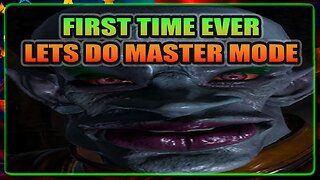 LIVE
LIVE
Mossy
2 hours ago🍃PRE HALO PARTY🍃OBLIVION HARDEST DIFFICULTY🍃COME CHILL🍃420 SESH🍃GAMING🍃REACTIONS🍃MORE????🍃
70 watching -
 18:15
18:15
World2Briggs
11 hours ago $15.80 earned10 Cities That Are Slowly Emptying Like a Sad Party
46.4K31 -
 11:34
11:34
Mrgunsngear
21 hours ago $8.50 earnedSiege Suppressors ROC556 Low Backpressure Silencer Review 🤫
33K5 -
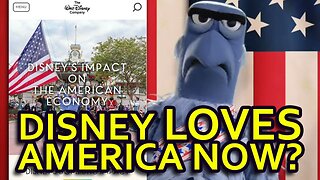 30:57
30:57
Clownfish TV
8 hours agoDisney Drops DEI and Goes PRO-AMERICA?!
43.5K44 -
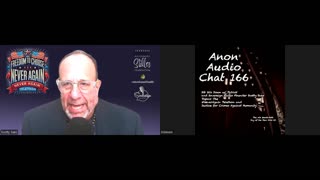 17:35
17:35
QNewsPatriot
21 hours ago(4/25/2025) | AUDIO CHAT 166 | SG Sits Down w/ Sovereign Radio Founder Scotty Saks: Vaxx Lawsuits and the #NeverAgain Telethon
46.7K17 -
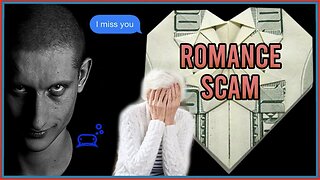 19:51
19:51
CatfishedOnline
5 hours agoSpouse Sends $50,000 To A Man Who Doesn't Exist 😱
33.9K4 -
 11:59
11:59
ariellescarcella
21 hours agoThe Dark Side Of "Queer Joy"
27.1K22 -
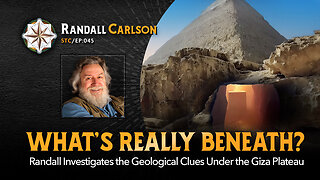 1:12:39
1:12:39
Squaring The Circle, A Randall Carlson Podcast
1 day ago#045 What Are The Structures Beneath The Great Pyramids in Giza? Squaring the Circle: A Randall Carlson Podcast
35.7K7 -
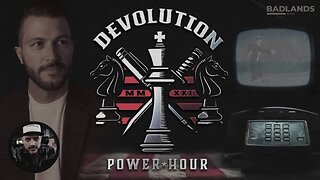 2:08:05
2:08:05
Badlands Media
1 day agoDevolution Power Hour Ep. 349: Trump’s Geopolitical Gambits, Sports Psyops, and the Regime’s Unraveling
144K110